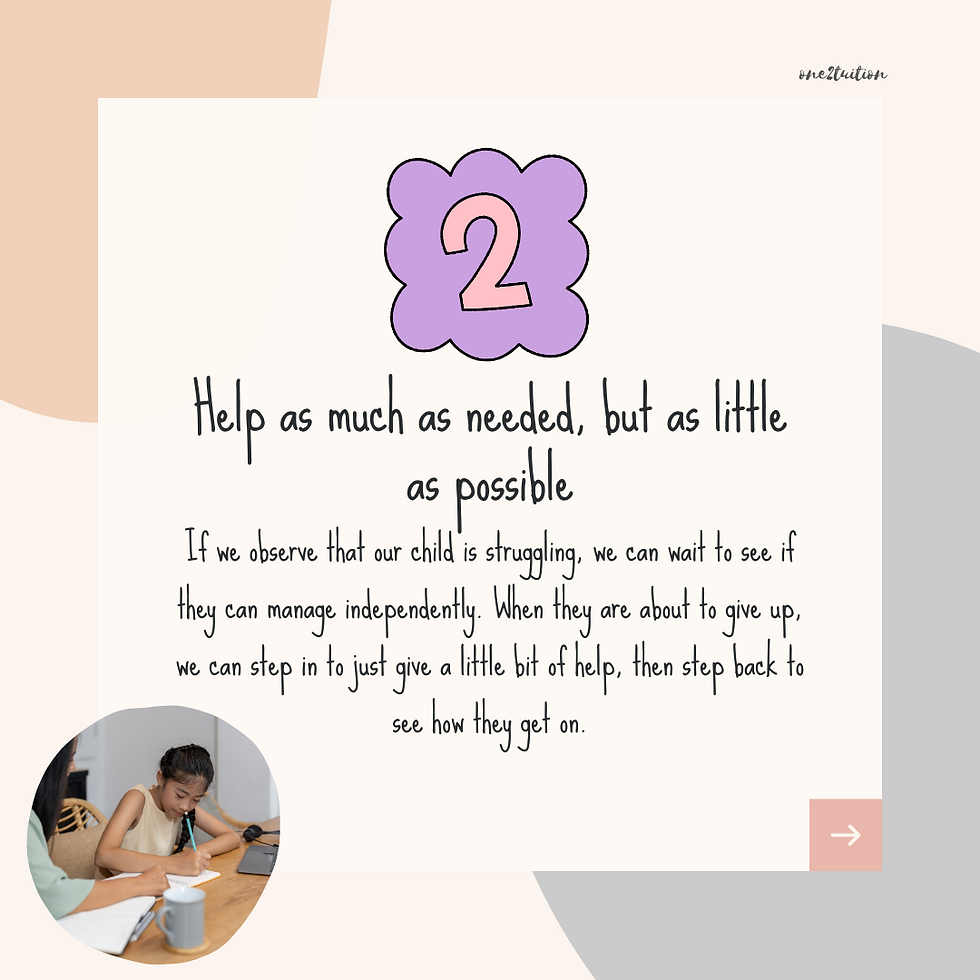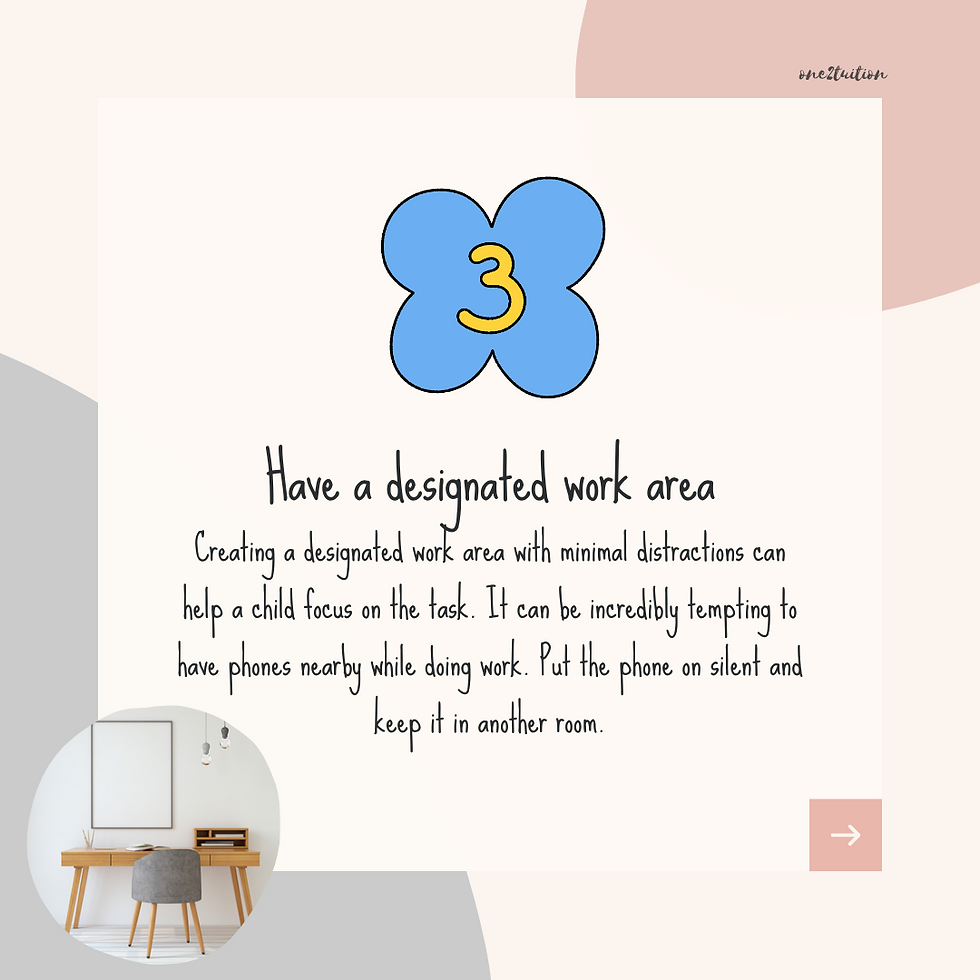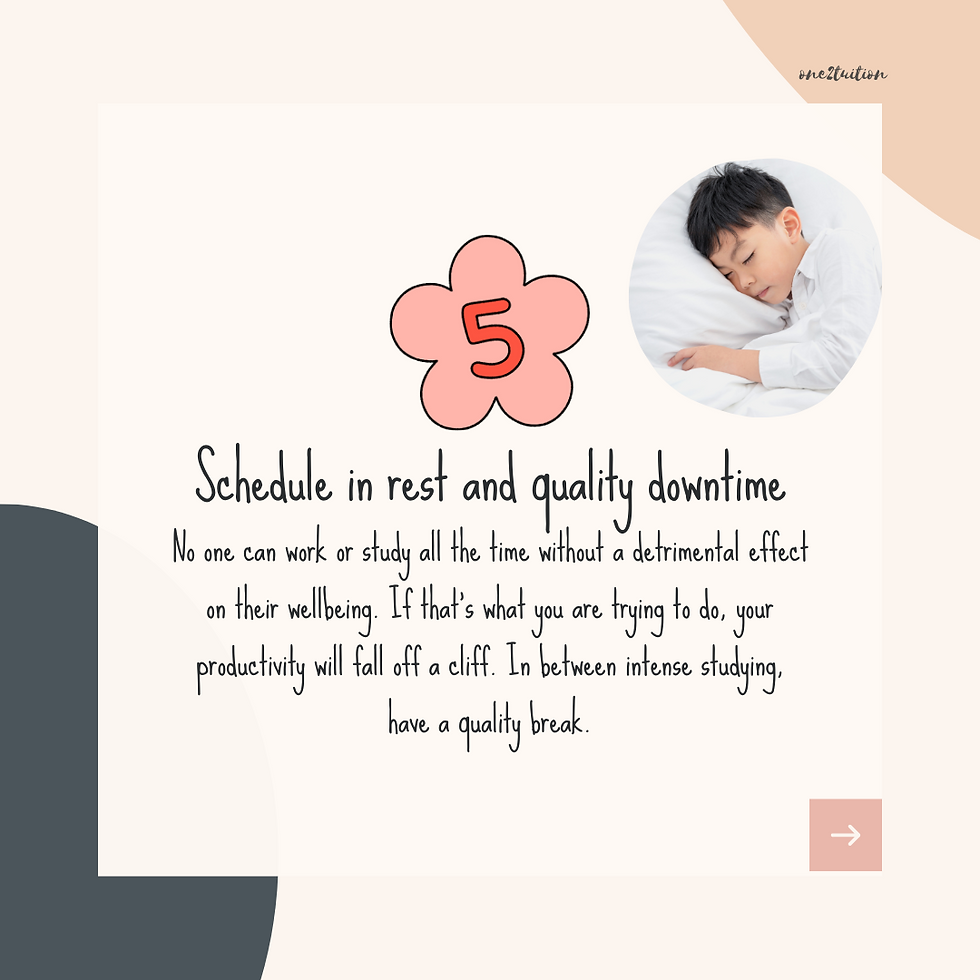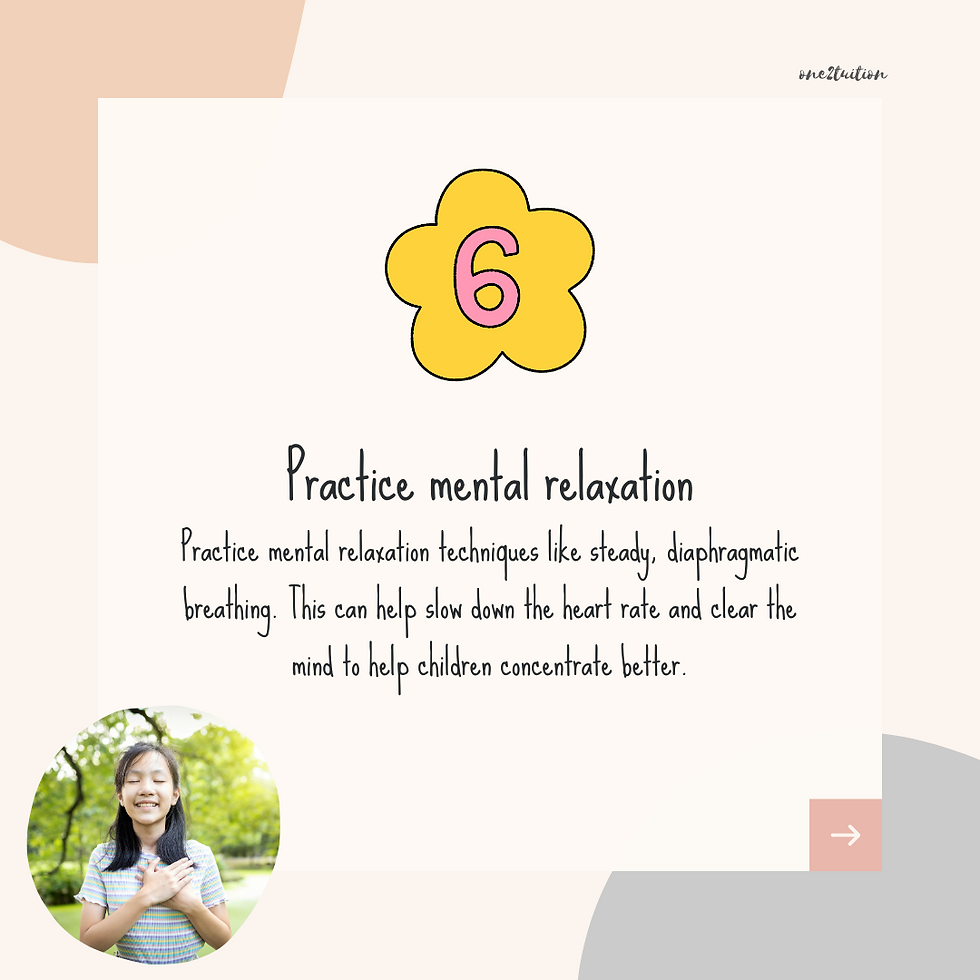7 Ways to Build Concentration in Children
- one2tuition

- Dec 18, 2023
- 2 min read

We learn best with focused attention. As we focus on what we’re learning, the brain maps that information on what we already know making new neural connections. (Daniel Goleman)
For children, staying focused is an important and necessary skill for the present, and in the future. However, due to their natural curiosity, exuberance, and energy, it can be challenging for them to concentrate for long periods. The good news is that concentration can be cultivated.
Here are some tips to help children build their concentration skills.
Try to avoid interrupting them while they are working
Minimize commenting on what they are doing and remain silent unless they ask for help. Constant interruptions can break their concentration completely and increase their stress levels.

Help as much as needed, but as little as possible
If we observe that our child is struggling, we can wait to see if they can manage independently. When they are about to give up, we can step in to just give a little bit of help, then step back to see how they get on. This may help them get further and allow them to continue concentrating. For example, we may prompt them to read the question one more time or highlight the important details in the question, and take a step back to see whether they can continue to the next step on their own.

Have a designated work area
Creating a designated work area with minimal distractions can help a child focus on the task. It can be incredibly tempting to have phones nearby while doing work. Put the phone on silent and keep it in another room.

Less is more
Quality over quantity. Assign 1 or 2 tasks at a time, followed by an occasional break in between. This will prevent your child from rushing through his work.

Schedule in rest and quality downtime
No one can work or study all the time without a detrimental effect on their wellbeing. If that’s what you are trying to do, your productivity will fall off a cliff. In between intense studying, have a quality break. During your break time, engage in activities that make you happy and ensure that you get plenty of sleep.

Practice mental relaxation
Practice mental relaxation techniques like steady, diaphragmatic breathing. This can help slow down the heart rate and clear the mind to help children concentrate better when they’re confronted with challenging tasks. Challenging tasks may cause them to be anxious and spike their heart rate. Anxiety leads to avoidance, the opposite of concentration. So finding ways to make tasks more approachable is important, and calming the body is one of those strategies.

Exercise to boost your energy levels
It’s really important to exercise your body to keep your mind engaged. Take your child for a run, brisk walk, or bike ride to get some fresh air and exercise.







Comments